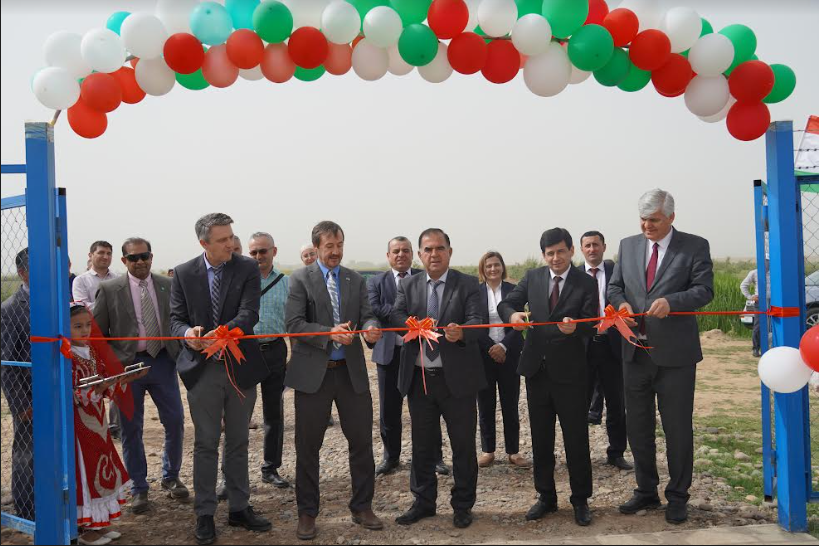On May 16, the United States Agency for International Development (USAID) and the Aga Khan Foundation (AKF) through the joint “Thrive Tajikistan” program, completed and officially handed over three new drinking water supply systems and three school latrines in three villages of Qubodiyon district in Khatlon province to the local authorities, say press release issued by the Aga Khan Development Network (AKDN) on May 17.
The drinking water supply systems provide uninterrupted access to clean water to 1,191 households (10,990 people).
Additionally, 1,424 schoolchildren and teachers will have access to sanitary school latrines.
Tajikistan’s southern districts, including Qubodiyon, have long suffered from a lack of access to clean water, which has inhibited its development ambitions. Until recently, people were using unsafe water from shallow wells, rivers, and canals, often resulting in poor health outcomes and nutrition insecurity, including waterborne diseases.
USAID, in cooperation with AKF worked closely with the local governance institutions and communities to tackle this water scarcity.
To date, “Thrive Tajikistan” has constructed 13 drinking water supply systems and 13 school latrines in
Farkhor, Hamadoni, Nosir-Khusrav, Panj, Qubodiyon, Roshtqala, and Shahritous districts that provide
43,161 people with access to clean drinking water, and improved sanitation and hygiene services to 8,304 people.
The five-year (2018-2023) “Thrive Tajikistan: Partnership for Socio-Economic Development” program expands the partnership between USAID, AKF, and the Government of Tajikistan to improve the quality of life for people in all 16 districts of Tajikistan along the country’s border with Afghanistan in Khatlon province and the Gorno-Badakhshan Autonomous Region (GBAO).
USAID is the world’s premier international development agency and a lead actor driving development results.
AKF partners with communities, nonprofits, businesses, governments, and local leaders to make long- term investments, build permanent institutions, and cultivate an active civil society with the aim to improve quality of life and break the cycle of poverty.




